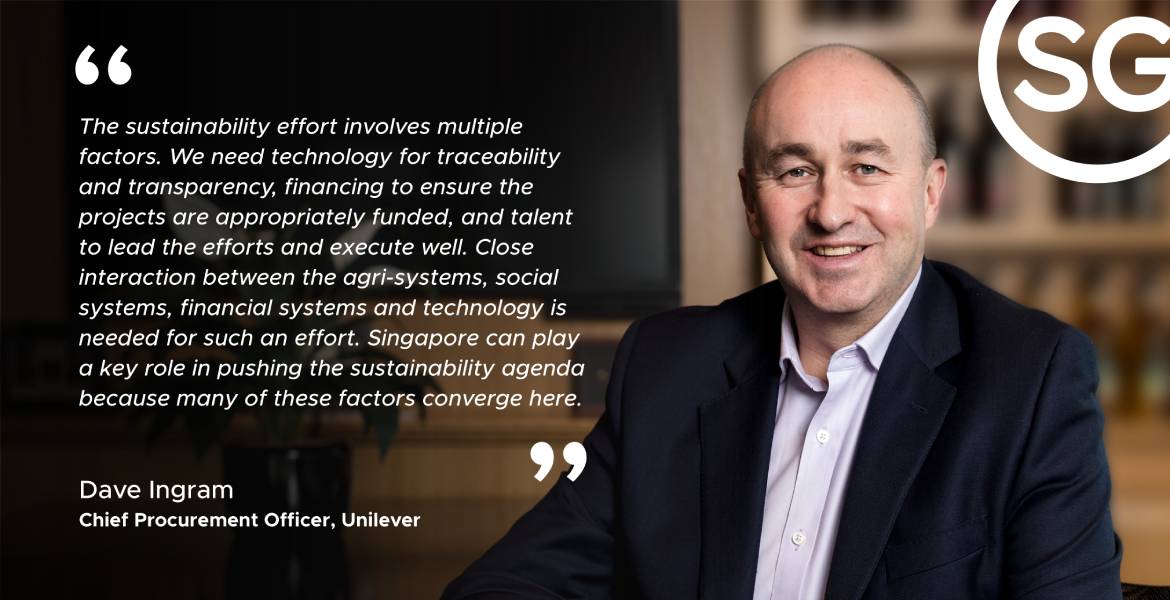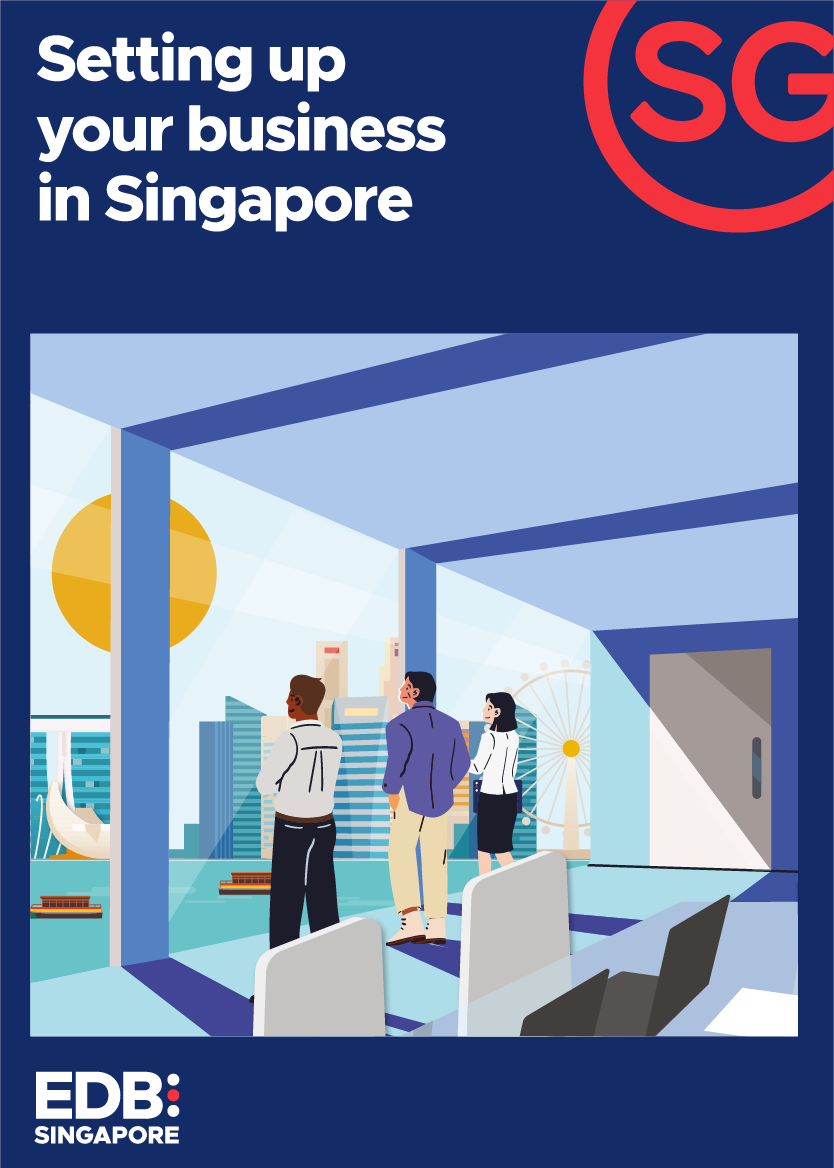Find out how you can set up your business in Singapore
Download the Guide to Setting Up Your Business in Singapore to learn more

I was in Peru in late January and an urgent call from our China’s business unit came in. They were getting increasingly concerned over a strange virus that was causing pneumonia-like symptoms.
It was still early days, and no one really knew what the virus was. But nobody could have expected how serious it would eventually become.
Today, 10 months after that call, Covid-19 has infected more than 50 million people worldwide and taken 1.2 million lives. And it has not entirely run its course, as countries around the world experience second and third waves of infections.
The pandemic has fundamentally reshaped businesses, reordered the economy and made us rethink our relationships. It is also imparting essential lessons that we can all learn from, even as we prepare to confront the next big crisis in the years ahead.
From fragility to agility
Many companies have always operated on the assumption that the global supply chain will continue to hold the way it has since the first container ship was launched more than 50 years ago. Covid-19 has been a major stress test to the system.
At the height of the pandemic, there was a real concern that supplies would be halted with border closures. China saw industrial production slump by more than 13.5 per cent in January and February, the biggest fall in 30 years. Trade activity also slowed to a crawl, with the World Trade Organisation estimating that global trade plummeted by 21 per cent as Covid-19 halted sea, air and land transport travel between countries. Ships were unable to move as freely as they once did. The fact that ships can or can't run is fundamental to food supply globally. Border closures have also given rise to a growing humanitarian crisis as seafarers are stuck on commercial vessels without current contracts or pay, due to restrictions at ports for crew changes.
With this experience, it is no surprise that companies are moving to strengthen and build more resilient supply chains.
As a global consumer goods company, we source agricultural products from all over the world – cocoa in Africa, tea from India, palm from Southeast Asia and inorganics from China. These products tend to come from a single source, not by choice but because of nature. We are now looking at how to duplicate our supply chains. Having part of our global procurement team based in Singapore not only places us in the centre of much of our sourcing, but also enables us to access a talent base regionally and globally. Unilever is also actively calling for world leaders to implement robust test and trace regimes and limiting crew contract extensions to protect seafarers’ rights and ensure the supply of critical goods globally.
Covid-19 has also made companies think harder about the way we prepare for future crises. The ability to forecast has been deprioritised and replaced with a need to be very agile internally. The speed of our systems, decision-making, innovation and onboarding suppliers is key to build agility within our business to react to consumer demand patterns and our changing supply chains.
Singapore has played a significant role in helping Unilever respond to the crisis with agility. The government has put in place an incredibly clear and strong set of measures that were well communicated. As a business, we knew what was coming up and could make the necessary preparations. EDB’s support was proactive and fast, and they cared about our ability to keep operating, and our suppliers’ ability to keep operating on our behalf.
Sustainability always high on agenda
The pandemic has also sparked off much debate over a more significant issue: while we are searching for solutions to the short-term crisis, are we losing focus on long term challenges such as climate change?
I don't believe that is the case. In fact, I believe Covid-19 has accelerated our efforts to develop sustainable solutions for many of our most pressing issues.
Humanity is confronting multiple crises at the same time. There is a social crisis, an environmental crisis, economic crisis and now a public health crisis.
Covid-19 has had the biggest effect on the most vulnerable among us, from gig workers to farmers and low-income workers. Farmers, who form a critical part of our supply chain, are among the worst hit by the crisis. If the farmer is not paid appropriately, he won't buy fertiliser or move to more sustainable methods of farming. Yields will drop, and we won't have crops to make our products work. It's a cycle.
If we are to solve one problem, we’ll have to tackle all of them together. This means that no one organisation or government is big enough to fix all the issues at once.
Unilever is on a renewed drive towards doing more good for planet and people. We are working on many areas on sustainability, including net zero emissions, protecting and regenerating nature, water stewardship and a commitment to reducing plastic use. Making sustainability commonplace is at the forefront of our business and is the only mechanism we have to ensure a sustainable business going forward; one with a long-term availability of supply, agri-businesses, water and income for people in the world. It explains why local partnerships are key in our sustainability efforts across all our markets. It is not something we do just to look good.
One example is Bango, a soy sauce brand loved by Indonesian consumers. We are working with 30,000 farmers in Indonesia to ensure they are operating a system that is regenerative. We are developing dwarf coconut plantations where farmers don't have to climb 30 feet up a tree to extract liquid from the coconut for sugar that is used in Bango. The result: a safer working environment and better yields.
Singapore's role as a hub and sustainability partner
It is no secret that the Singapore government’s clarity of vision and transparency in handling the crisis has engendered high levels of trust and confidence. We have been supported from the start. Besides ensuring continued operations, the safety of our staff is our upmost priority and Singapore’s approach to the pandemic has given us confidence that they are as safe as they can be here. We can see and anticipate what is to come and that has justified our decision to be long-term partners with Singapore.
The sustainability effort involves multiple factors. We need technology for traceability and transparency, financing to ensure the projects are appropriately funded, and talent to lead the efforts and execute well. Close interaction between the agri-systems, social systems, financial systems and technology is needed for such an effort.
Singapore can play a key role in pushing the sustainability agenda because many of these factors converge here. There is a thriving and growing start-up tech eco-system which provides the kind of technological solutions required for the challenges ahead. The country also has a talent base that is increasingly focused on building in-demand skills such as analytics, artificial intelligence and big data. In addition, Singapore also has strong links to banking and is home to many large-scale petrochemical and technology companies. It is for reasons like these that we believe Singapore can become a crucial partner for the global sustainability agenda.

Download the Guide to Setting Up Your Business in Singapore to learn more